Interview: Prince’s vault archivist, Michael Howe, talks to SDE
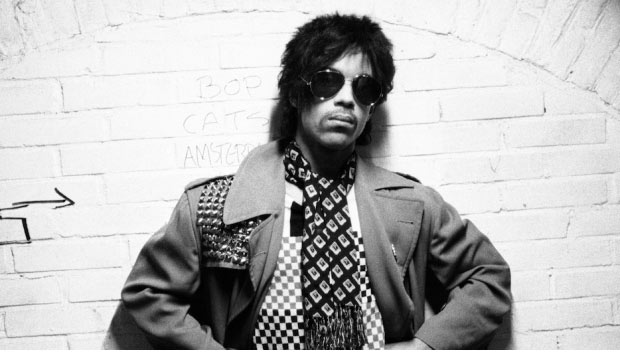
With the Originals release now available on CD, SDE spoke to Michael Howe the man responsible for Prince‘s audio archive. Just what exactly does he do and how do they decide what to release? Those and many other questions answered below…
SuperDeluxeEdition: How did you get the role of being Prince’s archivist?
Michael Howe: Well, I was an A&R guy for, I don’t know, 20-25 years or something, most recently at Warner Brothers. And, you know, I worked with Prince when he was alive, toward the very tail end of his life. And then, after he passed away I kind of stayed in the frame, so to speak, and tried to be as helpful to the various and sundry parties who were drifting in and out of the equation, and when the need arose for somebody to basically do what I’m doing, I put my hands up and left Warner and went over to work for the estate. That’s how it happened.
SDE: And how does the relationship with the record companies work, because, obviously, you’ve got different parties involved; Warners who go back a long way, and then you’ve got Sony that own more recent stuff. I mean, are you thinking about things like that when you’re working through the content of the vaults; who might own and where it sits etc.?
MH: Yes, I am, to the extent that I am the guy who, for the most part, A&Rs anything that comes out of a vault – I’m delivering the content to whoever’s going to be releasing it. So, yes, I’m thinking about that every day.
SDE: And is it always obvious who owns what material?
MH: Relatively, yes. I have a good idea and there are mechanisms in place that govern those things. And it’s easy to figure out if I don’t know the answer off the top of my head. By the way, if I sound vague on some of my answers it’s not because I don’t want to be helpful but I’ve had to sign a constellation of disclosure agreements.
SDE: So… would you say you’re looking for profitable projects for the estate or are you looking for creative projects that would suit Prince as an artist?
MH: All of the above. I mean the main thrust of my gig is to organise, preserve and curate Prince’s body of work, the audio-visual materials from the vault, which is an enormous undertaking, obviously.
The sort of side element to that is to accommodate the commercial considerations when they enter the frame, which frequently… so the basic guiding principle, really, is to do my job with the completeness and respect and integrity that Prince would demand and that the body of work deserves. But when commercial considerations emerge then we have to pivot to accommodate those things, so that it’s not really a linear proposition, so to speak.
SDE: I imagine there’s probably quite a bit of pushing and pulling, so it’s not just record labels sitting back passively waiting for you to knock on the door and say, ‘what do you think about this as an idea?’ Are they proactively knocking at your door, or the estate’s door, saying “we want to do this, what have you got in terms of this material for this era?”
MH: It’s a bit of both. There’s more knocking on my door, although when ideas come to us we try to be as proactive and helpful as possible so if we view it as an incomplete thought, for example, we try to offer a more comprehensive solution so that everybody would benefit. If it’s an idea that we are convinced, with some level of certainty, that Prince would not have approved, we respectfully decline. But it’s quite a dynamic conversation, it’s not a monologue that’s for sure.
SDE: With the new album, Originals, could you give us a little bit of a feel as to how the project originated?
MH: Yes. Basically an extension of what we did with Nothing Compares 2 U, which was released as a stand-alone single in 2018, and was very, very well received…unsurprisingly. And as an extension of that we thought it would be interesting to sort of shine a light on Prince… not just the performer, but as the guy behind the curtain, so to speak.
Because there are – I don’t know the exact numbers – but well over 200 songs that he wrote for other artists, that were not envisioned as part of a Prince proper body of work, for whatever reason. I recognise that some of these things have trickled out into the marketplace and, for the most part, these things are in sub-standard audio and it’s not a very satisfying experience. As a Prince fan, it’s interesting to hear things on bootlegs but I don’t find myself returning to them, for the most part, only because it’s such a painful listen, when it’s riddled with dropouts and compression and all kinds of other stuff.
So we thought it would be a special treat, not just for super fans but for more casual fans – and people who might have been familiar with the hits by the other artists – to hear Prince’s take on that.
So we put together a comprehensive-ish master list of stuff and whittled it down. It didn’t take particularly long. The most time consuming element, aside from finding some of the stuff, was determining how to contextualise it and sort of best proceed with this body of work.
A lot of these songs, for example, existed as rough mixes and we would, very happily, use a rough mix as a master. I mean we take as few creative liberties as we can, you know, we try to respect the original vision. But the vast majority, especially the early stuff, exists as rough mixes only on cassette, you know, some kind of substandard cassettes that really aren’t worthy of release, you know, from a sonic standpoint. So what we do is go back to the two inch master and we mix to the granular level exactly what the rough mix would sound like if we were able to clean up the cassette to the point that it would be releasable. So anything that exists on a format with some integrity, like a half inch reel or, you know, a DAT or anything else, we will release as a master as Prince, theoretically, would have contemplated doing.
SDE: So does this mean that you actually have multi-tracks for a lot of these tracks on the Originals album?
MH: We do, yes.
SDE: Okay. That’s quite interesting. I would have thought, you might just do a nice remaster of a stereo mix, but in most cases these are actually remixes of his original work?
MH: Well, in this case, they are mixes that would be the rough mix, you know, so I’m just arbitrarily picking, ‘Manic Monday’, which was on a cassette with too many dropouts and too many sonic flaws to really contemplate for commercial release. But we took that version, that would have been a master version, and mixed from the multi-track exactly to that spec.
SDE: Okay. That sounds like that’s a sensible approach…
MH: Yes. And, as I said, you know, in the case of something like ‘Love, They Will Be Done’, you know, there was an existing half inch rough with Prince’s vocal on it that was certainly sufficient for a master, it was a flat half-inch tape, so there was, you know, we didn’t have to mix anything there, we just turned that into the master, basically.
SDE: In terms of the availability of all the original tapes, were they well catalogued? Was it quite easy to find things?
MH: No. I wouldn’t say ‘quite easy’, but it’s not impossible. It’s more than a bit of piecing a puzzle together because the materials, for the most part, are not organised in any kind of conventional way. To the untrained eye, it seems pretty haphazard.
Having lived with the stuff for as long as I have, there’s certainly some rhyme and reason to it but… if you walked into the room you would be thoroughly confused, I think, by the way it is currently housed. But we’re figuring that out.
And sometimes we just don’t know what’s on it. A lot of these tapes are mislabelled or not labelled at all, or only partially labelled… so that if we put something up on the machine it has maybe what the label purports it to be but three or four other things that are delightful surprises to us that, for whatever reason, are not listed on the box or on the track sheet or in the notes. I mean it’s a world of surprises.
SDE: And talking of labelling, I’ve been involved in a few reissue projects myself, and sometimes you come across tapes that are labelled “do not use this mix”. This will be like 30 years later, so you think, well, okay, they said do not use then but this is a reissue project and that’s quite an interesting mix, so you need to decide if it’s fair game now. If you came across a tape where Prince had written, “not to be used under any circumstances” how would you feel about an instruction like that, now?
MH: I would adhere to it. I wouldn’t put it forward as something to possibly release. It’s a challenge, certainly, to try to determine what Prince’s thought process was at the time, or would be if he was still with us. I don’t think anybody can really figure that out, you know, it’s a very, very small group of people that talk about this stuff regularly, and we try to determine, to the best of our abilities, what is appropriate and what isn’t, and what is a high enough bar to really consider for a commercial re-release that Prince would, theoretically, be okay with. We take it very, very seriously. It’s something I think about every time I’m putting these things together, you know. I want to do right by the guy, I mean that’s kind of item number one on the checklist.
SDE: Some people would say, well, he never really dug into his vault very much. I mean there’s the odd thing, but he never seemed like someone that wanted to put out much stuff that was in the vault. So there’s the argument that if he’d wanted this out, he would have released it when he was alive. What’s your feeling in terms of how Prince would feel about, now he’s gone, actually releasing music from the vault? Is the general feeling that he knew it would probably happen anyway at some point and, therefore, it’s legitimate?
MH: I mean I get asked this a lot and my standard response is that, you know, we’re using our best judgement, number one; number two, is that Prince himself said, on at least one occasion, maybe more than one occasion, I’m paraphrasing but, you know, [he said] that he expected that the contents of the vault, or some portion thereof, would emerge at some point after he was gone. Again, I’m paraphrasing, but that seemed to be something that he acknowledged could be a possibility. And, you know, I talk to you and deal with people who were in the room with him every day, Peggy [McCreary], Susan Rogers, the people in the band and take their advice, and take what they say very seriously.
SDE: With this Originals project then, there’s so many tracks like this that you could have put out a 50-track boxset if you’d wanted to, I imagine. Is that where the record company comes into it, and they decide how to shape it in terms of commerciality?
MH: Well, somewhat. I mean we don’t want to induce Prince fatigue, you know. I’m not sure that opening the floodgates, with 50 tracks, is really the best consumer experience. And I’m not sure that it would be the best thing for the estate either. I mean I’m just thinking aloud here, you know, I’m not taking a position. But in this particular case we kind of envisioned a body of work… you know, more than a single and less than a boxset, that we kind of presented as a pretty appealing proposition to Warner, and they were very happy to basically let us proceed as we saw fit.
I would say, generally speaking, record companies, kind of err on the side of ‘more is more’, I mean just, because of the world we live in, from a fan engagement standpoint, but we, the keepers of the Prince legacy, are much more interested in quality over quantity. You know… presenting a finished body of work or shining a light on a particular creative period with respect and integrity [and] not just sort of dumping things into the marketplace because somebody’s asking for it.
And not that we would even be able to do that given the other mechanisms in place, but I know there’s a lot of fan chatter about, you know, “why don’t you release this?” and, “what about Dream Factory?” and it’s like, ‘yes’, is the answer to all of those things. We’ve thought about it, we’ve discussed it, [and] maybe it will happen at some point, but it’s not as easy as me going in and plucking out a half inch reel and sending it to [mastering engineer] Bernie [Grundman], and then just putting it into the marketplace.
SDE: And do you work with Troy Carter, who has this role as entertainment adviser? How does that relationship work if you work with him?
MH: I do work with him. I mean, he is, basically the public face of the estate as it comes to entertainment related deals. So he interfaces with and sort of conceptualises a lot of the overall deal structures, and negotiates with the various and sundry commercial partners. And he’s awesome. He’s a fundamentally decent human being. He’s a real music guy, you know, he is a very clear thinker, he’s supportive, you know, I can’t say enough good things about him.
SDE: So his role is a bit more about partnerships and deals and structuring things rather than the nitty gritty…
MH: Generally speaking, yes, but I mean he’s deeply involved in any element of what the public will end up either seeing or experiencing as part of the Prince ecosystem.
SDE: I want to talk to you about digitising in a second, but one thing … Sony has just released the ‘Rave’ albums, haven’t they?
MH: Yes.
SDE: And how does that work, then, because obviously those albums, they’re not new things, they’re things that came out before and they’re putting them out again. Will they have their own tapes for that or do they still need to come to you guys and say, look, we want to do this….we need access to the master tapes because we might have something that’s inferior? If they own something and they’ve put it out before, do they still need to engage with you if they want to put something out into the marketplace?
MH: Well, the short answer is yes. I mean there’s a mutual approval process that occurs, and we, for all of the things that they have so far released – and are going to release – we delivered them the masters. Again. You know, even if they had a couple, like Musicology, or whatever, I believe we delivered the masters to them [again] anyway. So I don’t know if that answers your question. I mean they can’t just insert something into the marketplace without our approval.
SDE: Even if it’s something that’s already been out before in exactly the same form, they still need to engage with you?
MH: Correct. They have been fantastic partners, they are extremely proactive and extremely engaged, and communicative and respectful, and they have not done anything without engaging us fully. And it’s been a real pleasure working with them.
SDE: Just briefly… I don’t want to go on about Sony, but for those particular releases, were there any conversations around, you know, “we’re going to reissue these albums, what outtakes do you have, could we put a bonus disc with them”. Because, obviously, Sony haven’t really gone down that route in the way Warner’s did with Purple Rain a few years ago.
MH: There have not been any conversations, any deep conversations, about that yet. I mean it has been, you know, sort of tossed around as something that could happen but, you know, there is nothing concrete at this point, to my knowledge…
SDE: Let’s talk about the digitisation process, then. Can you give us a feel for the scale of this archive? How many hours of audio or movie footage you have. Do you have an idea of when you may get to the end of your digitisation process?
MH: No I don’t. I mapped it out several months ago, you know, based on the current rate that we’re doing, and it’ll take years. I mean I’m talking about full-time, eight hours a day, five days… I mean that’s a tremendous amount of stuff.
SDE: How do you prioritise what stuff you tackle? I mean have you got material in the back of your mind where you think, okay, this is more likely to hit the marketplace in the next three to five years, than this other material, therefore, we’ll concentrate on that first?
MH: Well, yes, but as I said toward the beginning of the conversation, the way I have been approaching it, we’ve been approaching it, is to try to put the commercial considerations aside. We try to do it as chronologically as possible, for two reasons: number one, it’s generally the path of least resistance and the path that makes the most sense; and number two, those tapes, for the most part, are potentially in the most distress so the sooner you get to those the better.
[But] the commercial considerations show up every day. So we have to divert from the chronology and then focus on different, specific things. Some things are much more urgent than others, you know, some things we can take our time on
SDE: Prince sounded like he recorded so much material… rehearsals, sessions, live concerts etc., there just must be so much to get through, it must be a bit overwhelming at times, I imagine?
MH: It definitely is, yes. I mean it’s a good problem to have, but it is head spinning for sure.
SDE: Presumably you have to call on his old colleagues, producers, engineers, musicians, sometimes, to validate what things are or when they were recorded or to make some sense out of it.
MH: Yes. Fortunately in the cases of most of the analogue multi-track stuff and the half inch reels, the quarter inches and some of the other formats, labelling is decent enough but there are certainly times where we have been mystified and have to call Susan or Peggy, or whoever it is, an try to help put the pieces together to sort of figure out with somebody who was actually there, how it fits into the overall equation – if they actually remember doing it, which in some cases, not many, they don’t!
SDE: And the vault, it moved, didn’t it? It’s my understanding it’s in LA now, because it was obviously at Paisley Park.
MH: Yes.
SDE: Was that just about practical considerations?
MH: Not everything has been moved, you know, Paisley is still open and there are elements of Prince’s life that are still there, you know, instruments, clothing and whatnot, but the audio-visual materials and a tremendous amount of other, kind of high value stuff was moved from Minneapolis to Hollywood, that’s correct.
SDE: You’re obviously doing multi-track tapes as well. One question about the multi-track side of things… do you ever see any 5.1 surround versions of Prince’s studio albums being released?
MH: This is a tough one for me to answer, because the decision wouldn’t be entirely mine. I’m certainly open to it, as I think my colleagues would be. .
SDE: Because it’s reasonably common these days – perhaps more in prog rock circles – if you’ve got a multi-disc boxset to maybe put a blu-ray or a DVD in there and put a 5.1 mix, you know, as part of the overall offering…
MH: Yes. I mean, there are guys obviously guys who do it very well, like Steven Wilson…
SDE: Michael, what about the cost of this whole undertaking? I mean, it’s an expensive business, baking tapes, transferring tapes, you know, the time and energy and the cost of doing that. Is someone worrying about the cost of all this or is that not a consideration?
MH: Well, it’s certainly an expensive undertaking. The estate is mindful of the costs, [but] it recognises that it’s an essential cost and has been extremely supportive and helpful with making it happen. You know, I would imagine there is some fluidity to the cost, and as time marches on, maybe it will get scaled back or throttled up depending on what is immediately in front of us at whatever time, but there has been no pushback at this point, certainly, and there’s been nothing but their full support. You know, just kind of doing the right thing on behalf of the estate with this stuff. I mean it’s been a real pleasure.
SDE: I imagine this would be a long time in the future it if happened, but do you foresee a time where you might consider publishing the entire contents of the estate, you know, so people could look at a list, see what’s in there, almost like a kind of museum/library type resource, even if they can’t listen to everything, they could at least browse through and see what’s in the library?
MH: Maybe. You know, there are probably things that, the estate would not permit to be exploited in any way. I don’t know anything specific, but I’m sure that that would be the case. But I would say the vast majority of the stuff, I mean from an academic standpoint, certainly, and from the perspective of being able to have a public acknowledgement of a guy who was so titanically creative, you know, sort of living and breathing in front of you would be pretty interesting, I think.
I don’t think it’s being built or anything but I think it’s a pretty cool idea to be able to have maybe some kind of like interactive exhibit or something, you know, that looks at the arc of Prince’s life and, you know, his creative contribution to the world.
SDE: Prince is very well known for almost uniquely having so many songs that he wrote and recorded that were never commercially released. How much of the archive is just different versions of things we know, and how much is unheard material that no one’s ever had the pleasure to listen to?
MH: Well, if you count the live stuff and rehearsals and just general kinds of ephemera, I think the vast majority is things that people haven’t heard. Not all of it is super compelling in the way that his released albums were, for example, but there is, in my estimation, a tremendous amount of first rate material that hasn’t been heard that would be, theoretically, worthy of release.
SDE: You mentioned bootlegs earlier and things getting out, but in some ways it’s quite surprising that stuff did get out from Prince because he seemed quite a controlling individual, in terms of his own environment. So how did things get out back in the day?
MH: Well, I don’t know exactly. I think Prince certainly gave cassettes away to people and maybe didn’t ask for them back, that’s one way. I think that a couple of things probably walked out of there without his knowledge, through some unscrupulous person. There is a fair amount of stuff that seems to have trickled out, some of which is surprisingly robust, sonically and of pretty high integrity. I mean, it’s a little frustrating from time to time. It certainly shows that the appetite is there, which I like, but the wholesale commercial infringement of the stuff rankles me.
SDE: You know this already, but there’s a massive appetite for what you might call the classic Prince era of the 80s. All those albums like Sign ‘O’ The Times, Parade, Around The World In A Day etc. You know, big, expanded box set editions of those albums to come out, similar to the way Purple Rain did with live stuff, 12-inch mixes, outtakes, whatever… Is that kind of thing miles away or is it…
MH: No, it’s not miles away. I mean I can’t … this is a very dicey area for me but it’s not miles away. I think there will be, you know, a couple of them will probably emerge over the next year or two, is my guess. And one of them is pretty much done.
SDE: And getting back to this Originals album, then… who measures the success of these kind of projects, and how is success measured? Is it numbers and commerciality, is it how the Prince community, the fans and people like that react?
MH: Well, I mean I guess it depends whose seat you’re sitting in. I think if you’re Warner it’s more numbers than than critical acclaim, although critical acclaim, I would imagine, is part of it, to help drive the numbers.
From our standpoint I think it’s a combination of how it’s received in the marketplace and whether we think we have done the right thing by him by putting it out there – as judged somewhat by the community…and that we are sort of bringing joy to the consumer. Not only satisfying the hardcore, Prince aficionado but that we are turning people on to his music and his legacy who might only heard of him by name, or didn’t realise that he wrote ‘The Glamorous Life’, or whatever the case may be.
The emotional impact the music has on the listener is really, I think, what Prince’s number one goal was. He was not a perfectionist at all, as some people think he was. I mean he was really about the, you know, about the complete commitment to the music and the emotional impact it had and that’s the most important thing to remember.
SDE: What about the sort of political element, the noise in the background where you’ve got the the bank, the executors of the estate, you’ve got Prince’s heirs, you’ve got the labels. There’s a lot of competing parties who have their own viewpoint on what should go on. How do you deal with that?
MH: Well, I mean it’s tricky…I try to be as helpful as possible, but I try to stay away from anything that’s not really related to the creative process or the effort to sort of preserve and promote Prince’s legacy through the music. I mean I do get sucked into some of the other stuff because of what I do but I try not to let it affect the overall complexion of what I’m doing on the creative side, which is much more satisfying to me, and, frankly, much more important than the sort of nonsense in the background.
SDE: Are you committed to this role for the long term. Do you think you’re going to be here in five or seven years’ time?
MH: I certainly would like to be. It’s by far, the most satisfying, creative pursuit I’ve ever undertaken. I mean I’ve had the good fortune of having worked with a number of pretty iconic artists in various and sundry capacities, but Prince was, in order of magnitude, more creatively evolved of anybody, really, that I can think of.
And it’s, you know, it is pretty special to be the guy doing what I do. I mean, I move through life with a lot of gratitude and as much humility as I can muster on a daily basis.
Michael Howe was talking to Paul Sinclair for SDE. Prince’s Originals is out now on CD. The vinyl and deluxe edition will follow on 19 July 2019.
Compare prices and pre-order
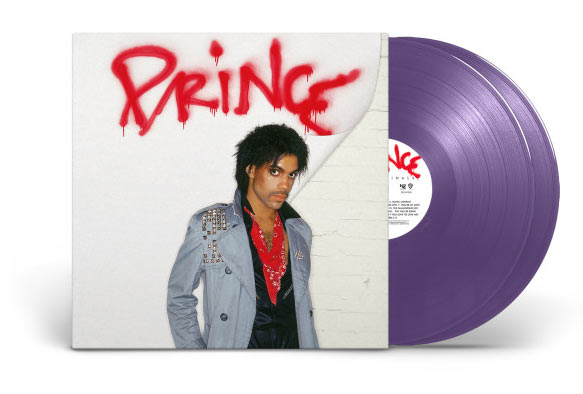
Prince
Originals - 2LP purple vinyl+CD deluxe

|
|
||||||||||||||||||||||||||||||||||||||||||||||||||||||
Compare prices and pre-order
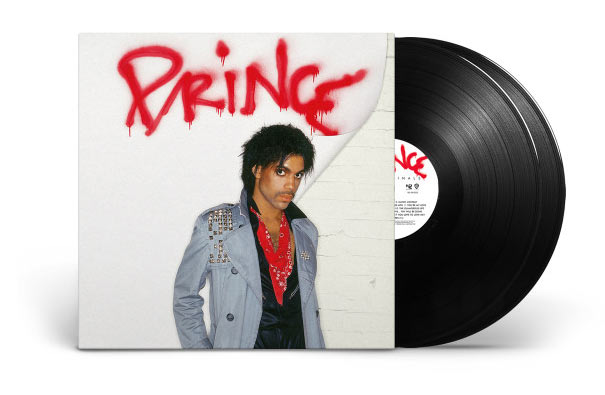
Prince
originals - 2LP black vinyl

|
|
||||||||||||||||||||||||||||||||||||||||||||||||||||||||||||
Compare prices and pre-order

Prince
originals - CD edition

|
|
||||||||||||||||||||||||||||||||||||||||||||||||||||||||||||
![]()
First Released by (Artist: Album – year) followed by the year of Prince’s recording included on Originals
1. Sex Shooter Apollonia 6: Apollonia 6 – 1984 / 1983
2. Jungle Love The Time: Ice Cream Castle – 1984 / 1983
3. Manic Monday The Bangles: Different Light – 1985 / 1984
4. Noon Rendezvous Sheila E.: The Glamorous Life – 1984 / 1984
5. Make-Up Vanity 6: Vanity 6 – 1982 / 1981
6. 100 MPH Mazarati: Mazarati – 1986 / 1984
7. You’re My Love Kenny Rogers: They Don’t Make Them Like They Used To – 1986 / 1982
8. Holly Rock Sheila E.: Krush Groove (OST) – 1985 / 1985
9. Baby, You’re a Trip Jill Jones: Jill Jones – 1987 / 1982
10. The Glamorous Life Sheila E.: The Glamorous Life – 1984 / 1983
11. Gigolos Get Lonely Too The Time: What Time Is It? – 1982 / 1982
12. Love… Thy Will Be Done Martika: Martika’s Kitchen – 1991 / 1991
13. Dear Michaelangelo Sheila E.: Romance 1600 – 1985 / 1985
14. Wouldn’t You Love to Love Me? Taja Sevelle: Taja Sevelle – 1987 / 1981
15. Nothing Compares 2 U The Family: The Family – 1985 / 1984

 Interview
Interview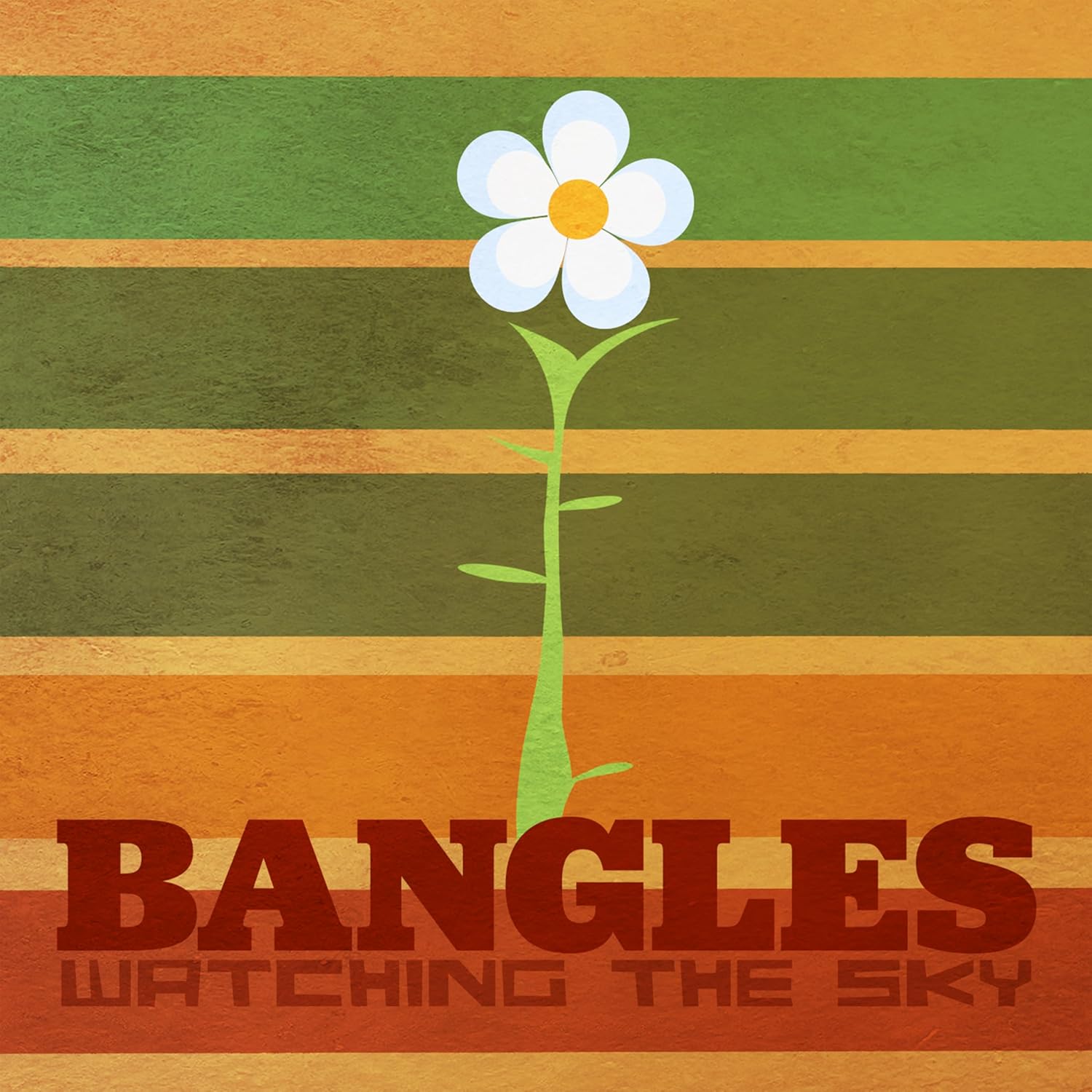
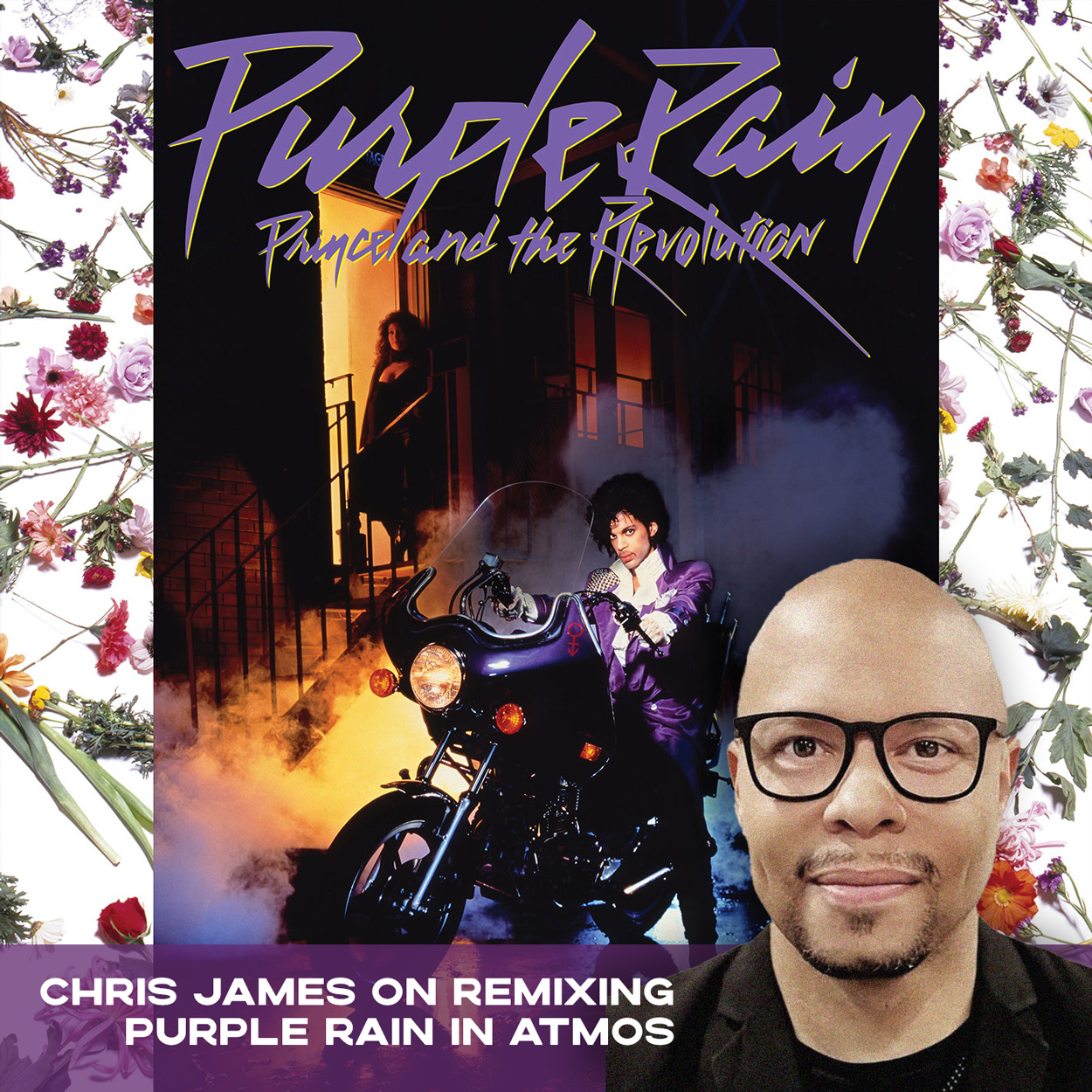

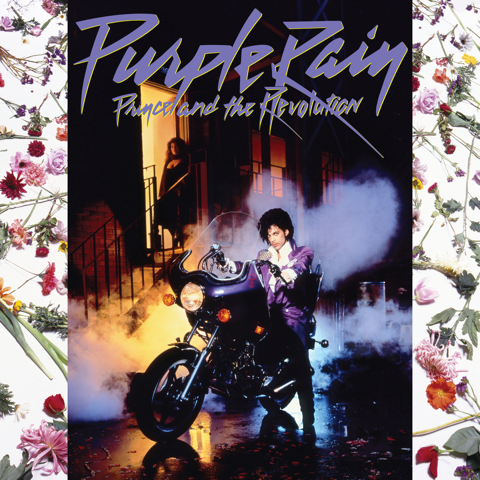
By Paul Sinclair
79